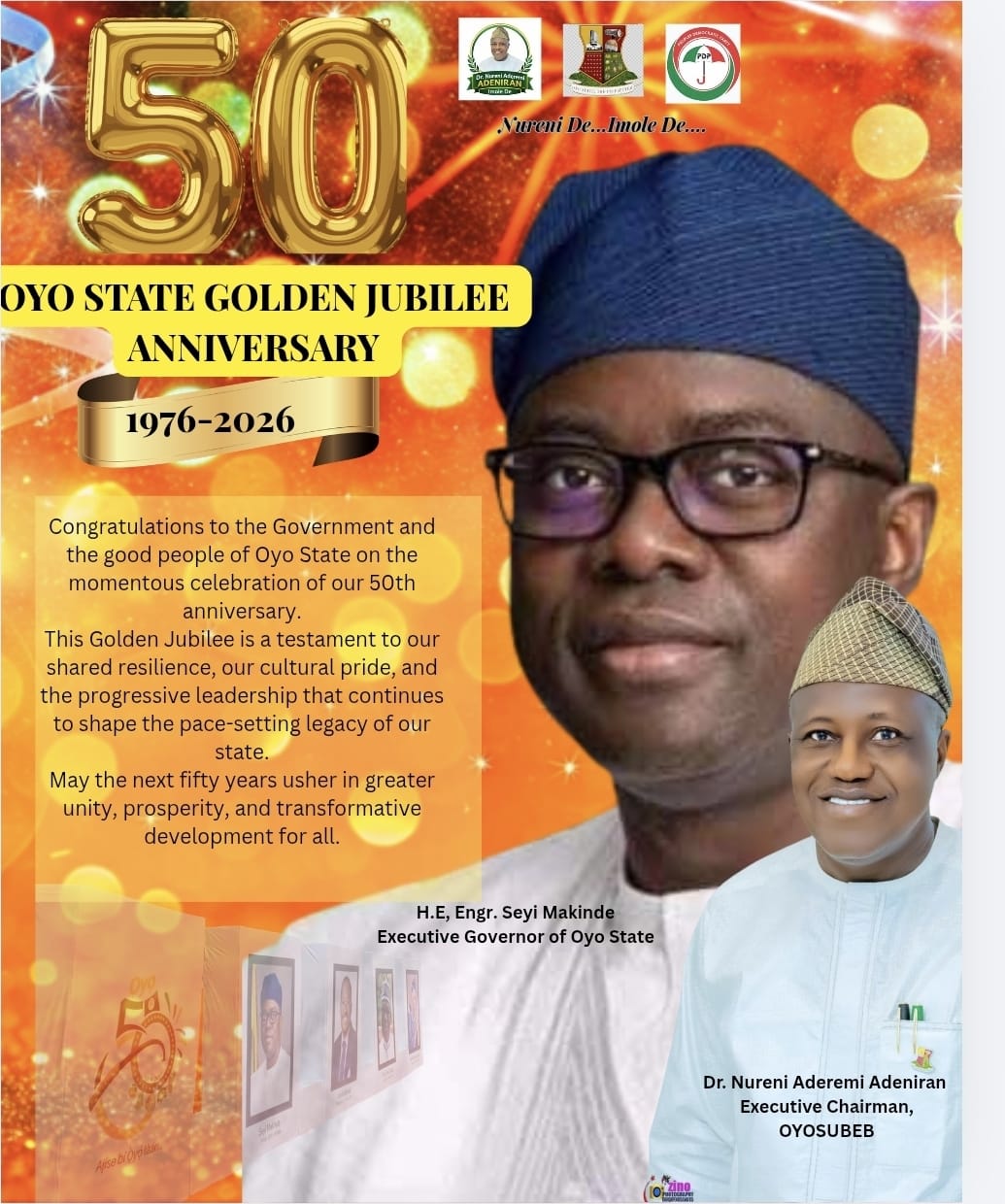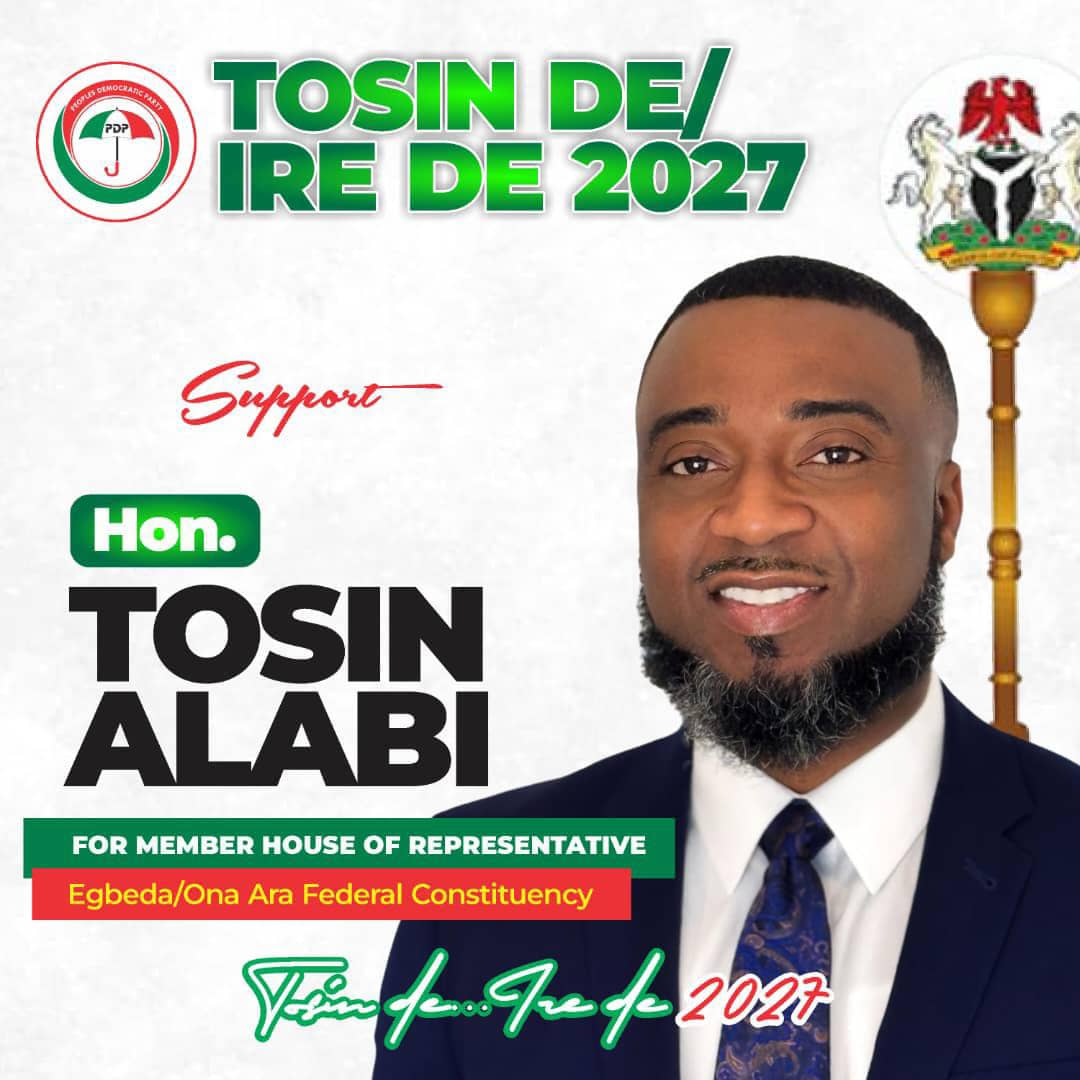A lot has been said about the unsightly situations, nature and dimensions of growth of most cities of sub-Saharan Africa of the global south, especially, Ibadan, which has been ‘enjoying’ the largesse of successive governments from the pre- to post-colonial days, especially as headquarters of the old Western Region, and as the capital city of the old and ‘new’ Oyo State of Nigeria.
The capital city, no doubt, has all the potential to continue to grow demographically, economically, politically and socially, towards expanding its boundaries in all directions. The potential for further growth is a serious impetus and drive for any business minded private investor or government to think of how to tap from the potential benefits of such growth, and thereby contribute to the process of the overall city growth.
This, perhaps, at a face value, explains, if not defends, the interest of the Oyo State government in real estate business over and above other sectors, which may not yield quick returns, but which may require injection of the state’s ‘meagre resources’ into them before yielding any fruitful economic returns. How true is this with respect to the intention of the state government to use the green area of the Trans Amusement Park for housing estate development? What implication does that have for sustainable development of the city? What does the physical development plan (Master Plan) for Ibadan City have to say about the proposed ‘development’? How rigidly does a physical development plan guide the growth and development of a city? How is a master plan supposed to be implemented? What other approach to development planning can we explored? Who are to be involved right from the process of conceiving development ideas through to implementation?
Growth refers to increase in size of anything. Urban growth, therefore, refers to increase in the city economy, measurable and observable through increasing size of urban population, volume of city trade, production and its spatial extent or built-up area, among others. If not properly managed, urban growth will not only lead to imbalance and inefficiency in the city economy, but also to the attendant urban challenges such as increased traffic volume, congestion, urban pollution and environmental stress. No doubt, urban growth is a sine-qua-none to urban development. Urban growth that is not coordinated and guided by a well-conceived and properly implemented development plan, can only result into mere growth without development.
Unguided urban growth can not translate to development, even when it results in the expansion of the urban economy, as the benefits accruable from such growth process may result in widening the gaps between the haves and the haves-not. Urban development, therefore, refers to the situation and process of an increasing level of the city growth that has resulted or capable of resulting into growth in all directions, sectors and facets of the economy, as well as improved access to urban facilities and services, including recreational facilities, parks and garden, preserved cultural heritage, green areas, and generally more habitable and livable communities for different categories of city dwellers and segments of the city population, as well as their activities.
The city of Ibadan, being one of the renown capital cities ‘reputable’ for the unparalleled process of city economic growth and expansion, can not be said to be a poor destination for any serious real estate investor. The state government can not be blamed either for looking for every means of expanding the economic base of the capital city to meet the growing demands of the ever-increasing challenges of the state economy. As a business-conscious government of any of the emerging capitalist urban economies that epitomize the world aggregate urban economy of the 21st century, the temptation to pursue the economic expansion goal, even at the detriment of social and environmental justice, is always there, and at times, irresistible.
This will however negate some of the goals and objectives of such global development agenda as Sustainable Development Goals (SDGs), to which Nigeria, as a member nation of the global community, subscribe.
The case of the green area of the Trans Amusement Park in a prime area of the city that is purportedly being ‘planned’ for a housing estate is the focus of this discourse. Just like observations were made about similar actions of government, as chronicled by earlier writers, a lot of arguments and counter-arguments have ensued on the proposed ‘development’ in the last couple of weeks or days. Three important views have been held and aired privately or via print, electronic and other social media. The first view is that of government, that, being in a prime location, the land area, if developed into a housing estate, will not be ‘lying fallow’, but command a high economic value which could benefit the coffers of the state government, the proceeds of which could be used to meet other economic challenges and developing other sectors, including recreation, parks and garden elsewhere.
The second view is environmentalist in nature, in that the green area, being a cultural heritage, common public good, and readily accessible recreation area for all and sundry, should be protected and further developed into a better recreational area and/or park and garden for the common benefit and use of all. The third view is also environmentalist in nature, but of physical planning concern, it calls for reference to the Ibadan City Master Plan (ICMP) to see the extent to which such proposal agrees with the master plan, and for proper implementation of the ICMP. All the views can not be whisked away, but should be given a deeper thought.
The argument in this discourse will neither be in full support, nor against any of the three views, it will rather harmonize them. While the first view is towards economic gain, which of course is necessary, for true development, the second view is towards environmental protection and resource management goal with unquantifiable long-run economic and social benefits. The third view, on the other hand, is about the goal of coordinating, guiding and charting the course of city growth and development in a physically sustainable manner. No one can say with any authority, however, whether or not the proposed housing development is in line with the ICMP, as the plan has not been adopted as expected.
As laudable as the goals of the three views may appear respectively to economic, environmental and physical planners, applying each piecemeal will not yield the desired results. Even when it does in the short-run, the eventual social or economic costs, as the case may be, tend to outweigh the early gains. For example, apart from the unguaranteed protection of interests of different segments of the urban population, the social and environmental injustice that may accompany the laissez faire approach to the proposed housing development of the Trans Amusement Park area may be unquantifiable. Reference to, or implementation of the physical development plan, as suggested by the third school of thought, could have been in order. The plan has, however, not been followed right from time, and picking aspects of it, bit by bit, may not be in tandem with the goals of putting it in place in the first instance. More so, it may not align with the economic directions of the current state government, which has displayed utter lack of interest in it over time.
A clarion call to the state government in this regard is for it to approach urban growth and development of Ibadan, just like it should for other towns and cities in the state, with sustainable development agenda. This approach encapsulates and sits on a tripod stand with three legs – economic, social and environmental goals – which are the primary objectives of sustainable development, not just growth. It is suggested that the government should first have a rethink on the proposed housing estate development, suspend it and begin to take a holistic approach to analyzing the nature, types and distribution of development potentials and land resources in the city, towards formulating a City Development Strategy (CDS) for the capital city of Ibadan.
The CDS is not the same thing as the much talked about Ibadan City Master Plan (which is a physical development plan). It is a strategic multi-sectoral plan, a development plan, that specifies in broad terms the economic strategies and development directions such as those for housing, transportation, industrial, recreation/park and garden, among other facets of development. In line with the CDS, other specific and/or detailed plans such as physical development plans (master plans) for the entire city or part thereof may be prepared or reviewed (if existing). This will also necessitate regional development plan for the entire state. This will help identify issues of economic, resource and population distribution considerations, as well as how to correct imbalance in the spatial and aspatial distributions of growth and development potentials and/or resources in the entire state.
In other words, the emphasis is that the plan for the city growth and development must not be piecemeal and should not be based on economic goals alone as in the case in question, while social and environmental justice agenda only may also not be quite viable in the present global urban economy of capitalist orientation. To attain holistic growth and development, however, the government must be ready to embrace a multi-sectoral development planning process which involves all categories of stakeholders – different segments of the urban population, representatives of the municipal or state government (in this circumstance), development experts and built environment professionals, among others – right from the conception of development agenda to the last stage of implementation. The pluralistic characteristic of the urban society must be adequately acknowledged and explored for the planning of growth and development of a healthy city economy and sustainable urban environment.
The ‘plan’ for the proposed housing estate in the green area of Trans Amusement Park cannot be said to have undergone such highlighted process, and the state government, therefore, is advised to seek more expert opinions, preferably of the built environment professionals before embarking on such development project.
Omoakin Jelili is Professor of Urban and Regional Planning and Chairman, Oyo State Chapter of the Nigerian Institute of Town Planners.
























